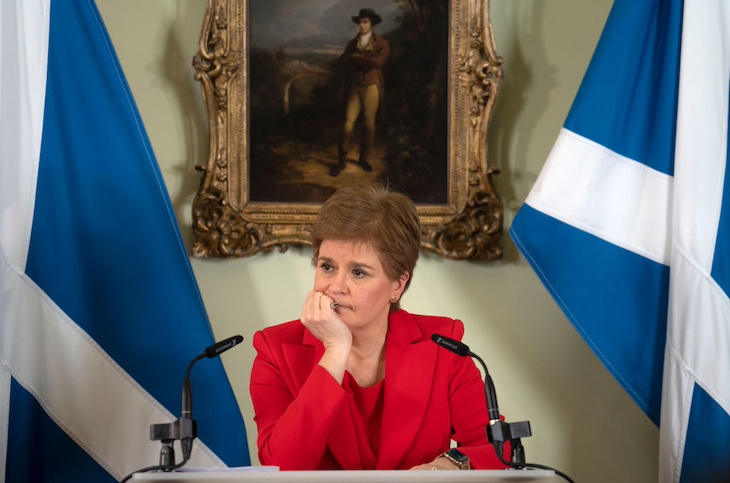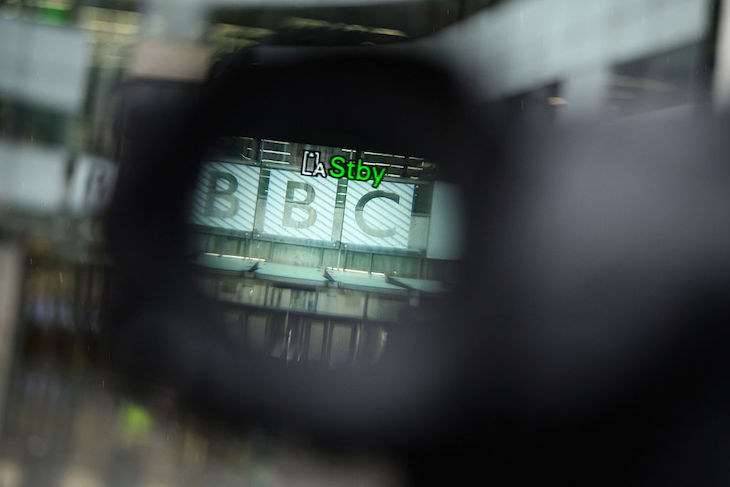The starting gun for the general election has been fired. This 2019 parliament is over and we will have a new government in Westminster in six weeks’ time.
There have been many significant political inflection points this parliament. Partygate of course. The departure of Boris Johnson, Liz Truss’s brief period as Prime Minister. Arguably as important as any of this is the resignation of Nicola Sturgeon in March 2023.
Since her surprise departure from Scottish politics, it is worth dwelling on just how far the SNP have fallen.
At the 2019 general election, they won 45 per cent of the vote and 48 of Scotland’s 59 seats. At the height of the pandemic, more than seven in ten Scots were satisfied with the job Nicola Sturgeon was doing as First Minister. Even the month she resigned, following a mix of personal scandal and political crises, she still had net positive favourability rating with the Scottish public. Her party was averaging 41 per cent in Scottish Westminster polling in the first quarter of 2023, down only slightly on 2019.
Things have got worse for the SNP since then. Ipsos polling this March showed Scots hold a net negative view of the SNP and think they have done a bad job in government on issues such as improving the NHS or living standards. Meanwhile, independence, the most important issue for Scots as recently as April 2021 (just before the last Holyrood election), now sits fifth on a list of the Scottish public’s priorities behind the NHS, cost of living, the economy and education. Humza Yousaf has gone and the SNP’s average Westminster poll rating this year stands at 33 per cent. It is increasingly common to see Labour ahead – especially since Humza Yousaf’s departure as SNP leader.
Perhaps most importantly of all, seven in ten Scots now say Scotland needs a fresh team of leaders. The palpable sense in Britain that it is ‘time for change’ at the general election appears to be felt in Scotland too. This cannot be underestimated and it does not bode well for the SNP.
Scottish politics is important. Not just because it obviously matters to the Scottish public who governs them, or who represents them in Westminster but because it matters for the future of the UK too. The question of independence has not gone away, even though it currently isn’t as important for Scottish voters. A majority of those under the age of 50 in Scotland consistently tell pollsters they favour independence. It would be foolish for Westminster to be complacent about the future of the union.
In the more immediate term, Scotland is also crucial to the outcome of the coming general election. Earlier this parliament, election analysts often pointed out that Labour needed a strong double digit lead nationally to win a majority of one in Westminster. But significant change in Scotland alters that calculation considerably. The kind of swings we are seeing from the SNP to Labour in the opinion polls today suggests that Labour gaining 30 or more seats in Scotland, with the SNP losing a similar amount or more, is a plausible outcome. These are perhaps at the upper end of estimates at this stage but plausible nonetheless. That would mean Labour could afford to do much less well in the rest of the UK to win a majority this July.
Of course, things can always change. A small change in vote share in Scotland can drastically change the number of seats a party wins. A modest improvement in the SNP’s position could lead to the party saving scores of seats and making Labour’s path to a majority in Westminster more difficult.
What is clear however is that Scotland will be a key battleground at this election. It will be interesting to see how much time Rishi Sunak and Keir Starmer spend in Scotland during the campaign. Whilst navigating the challenge of winning over pro-independence SNP voters in some areas and pro-union Conservative voters in others will not be easy for Keir Starmer, the potential political dividend is obvious.







Comments